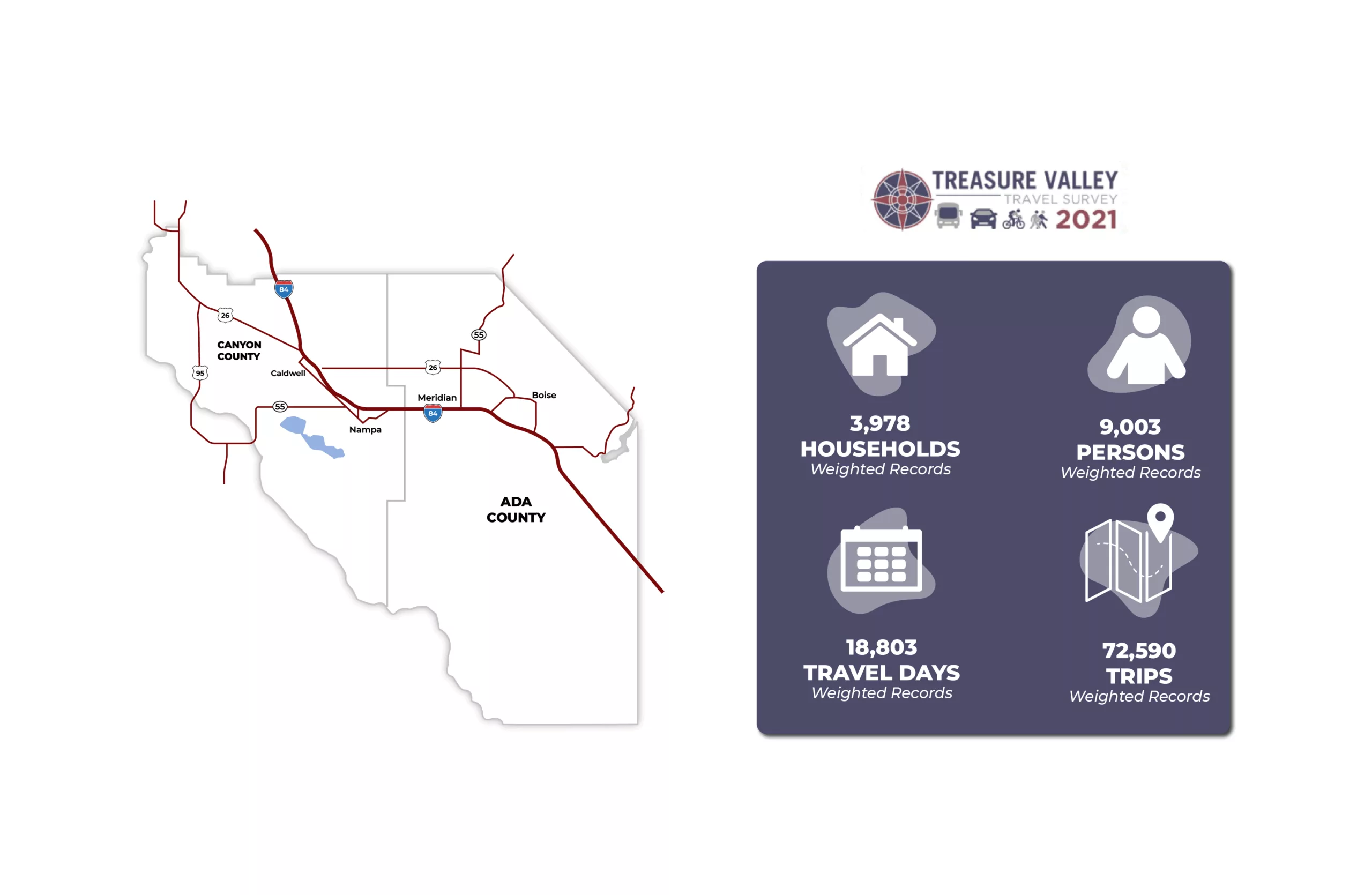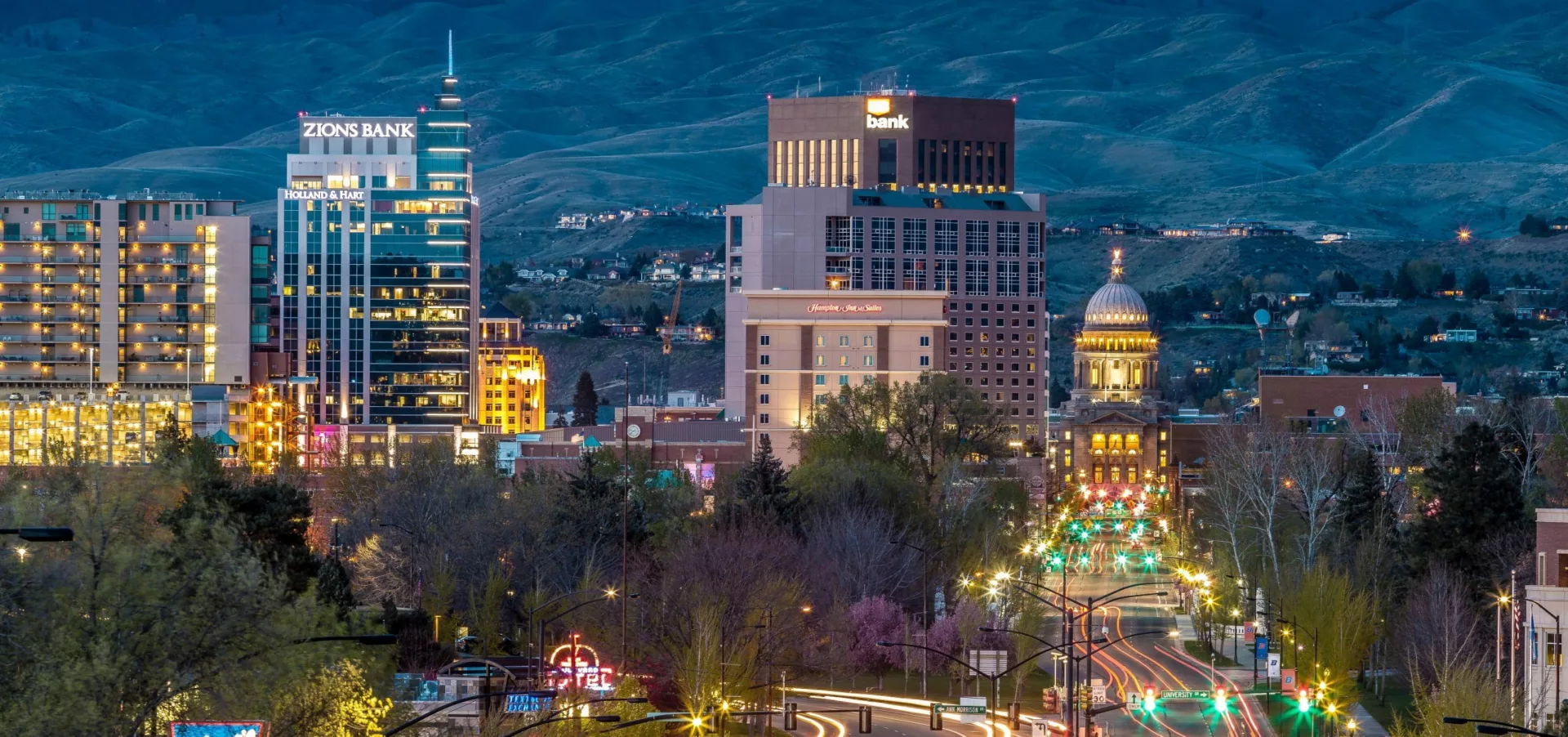The Community Planning Association of Southwest Idaho (COMPASS) informs its planning process through data collection and analysis efforts that provide critical data on travel patterns in the region. Household travel surveys, passively collected data analysis, and transit on-board surveys are key components of these efforts that help organizations like COMPASS understand the daily travel habits of households in the region, including how they travel and how far they go.
The Challenge
In 2021, COMPASS initiated the Treasure Valley Travel Survey to obtain high-quality data on travel behavior in the region. The goal was to gain a better understanding of how local roads, highways, bike lanes, sidewalks, and public transportation are being used, and how the organization can improve upon them moving forward. COMPASS also wanted to learn how recent changes like population growth, new transportation options, and increased teleworking frequency have affected the region. COMPASS wanted to utilize multiple data collection and analysis efforts to understand behavior in their region. To accomplish this, COMPASS chose RSG for our cutting-edge survey-based research and mobility data analytics services.
RSG’s Solution
COMPASS teamed up with RSG to conduct the 2021 Treasure Valley Travel Survey program. This work included a household travel survey, a transit on-board survey, and passively collected data analysis on the impact of travel from outside the region. The program was designed to collect data on the travel and transit behavior of southwest Idaho residents to inform future travel demand modeling. RSG was able to assist COMPASS by providing cutting-edge data collection and analytics services to fulfill the program’s goals. For the household travel survey component of the program, COMPASS ultimately gathered 4,012 responses—over their goal of 4,000—that were relatively representative of all groups, even those that are traditionally hard to reach.
The household survey utilized rMove®, RSG’s innovative smartphone-based GPS data collection app. Participants downloaded the rMove app to collect data on their daily trips. In addition to passively collecting data, the app prompted users to answer daily survey questions after each trip, thereby lowering respondent burden. For external trips to the survey region, COMPASS utilized RSG’s mobility data analytics service to convert raw mobile device sightings into inferred trips using behavioral inferences. This worked through a four-step process:
- Preparing data for billions of location points.
- Identifying, classifying, and linking stops to create trips.
- Expanding the region based on trip information and other data sources.
- Aggregating and visualizing trip data to discover key insights.
As part of the program, RSG also helped COMPASS conduct an on-board transit survey to gather information on how residents use public transportation in the region. Trained staff administered surveys to random riders, and RSG then processed, weighted, and analyzed the data collected. With this highly detailed information on transit trip origins and destinations, the team was able to obtain valuable data on transit ridership in the region.
RSG’s application of rMove and mobility data analytics to the Treasure Valley Travel Survey helped COMPASS increase the depth and breadth of data collected. Importantly, rMove’s lower respondent burden, compared to traditional surveys, meant participants were willing to participate in the survey for longer periods of time. These tools, when paired with the transit on-board survey, provided richer data on household travel, transit use, and day-to-day variability in travel patterns. Ultimately, travel survey programs such as this one help COMPASS continue to serve the region’s growing population. They are critical to understanding the region’s current transportation needs, prioritizing future transportation investments, and producing competitive federal grant applications.






